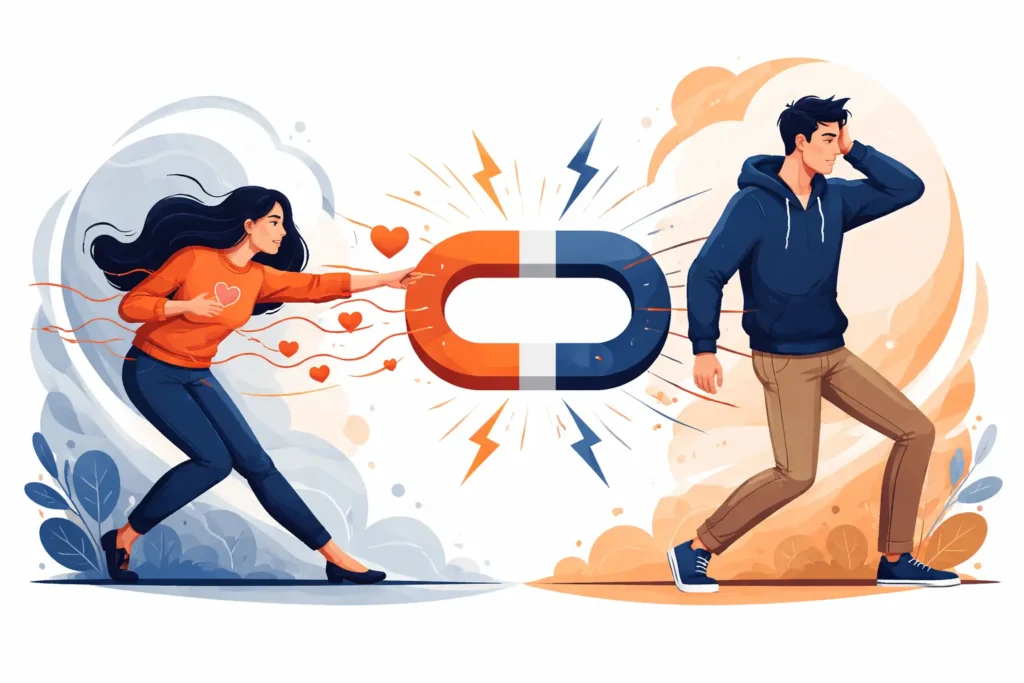Ever wondered what triggers anxiety and why it sometimes hits you like a wave, seemingly out of nowhere? You’re not alone. Millions face this feeling daily, and while anxiety is a natural response to stress, its causes can vary wildly from person to person.
In this guide, we’ll explore common anxiety triggers, why they affect you, and how to deal with them in a way that’s both practical and kind to your nervous system. If you’ve ever found yourself feeling anxious for no reason, this article will give you some serious clarity.
🌪️ What Triggers Anxiety in the First Place?
At its core, anxiety is your body’s way of saying: “Hey, something might be wrong.”
Whether it’s a deadline, a difficult conversation, or just the unknown, the fight-or-flight response kicks in. It’s how our ancestors stayed safe from wild animals. Today? Your brain might be doing the same thing… but for a Slack notification.
Key causes include:
- Genetics: Anxiety can run in families.
- Environment: Stressful upbringing or surroundings.
- Learned behaviour: Watching others respond anxiously trains your brain.
- Unprocessed emotions: What you suppress doesn’t disappear—it waits.
🎯 Want to get to the root of your anxiety?
👉 Take the Free Anxiety Test⚠️ 8 Common Anxiety Triggers (And What They Mean)
Let’s break down common anxiety triggers that you might not even realise are impacting you:
| Trigger | Why It Affects You | What You Can Do |
| Caffeine | Mimics symptoms of anxiety, like a racing heart | Switch to herbal tea or reduce intake |
| Conflict | Triggers fear of abandonment or rejection | Practice assertive communication |
| Financial Stress | Triggers uncertainty and fear | Use budgeting tools, seek advice |
| Health Worries | Fear of diagnosis or physical symptoms | Get medical clarity + emotional support |
| Social Situations | Fear of judgment or embarrassment | Prepare ahead, practice grounding |
| Sleep Deprivation | Worsens mood and cortisol levels | Sleep routine = mental stability |
| Work Deadlines | Triggers perfectionism and burnout | Use task batching, manage scope |
| Unresolved Trauma | Your body reacts even if your mind forgets | Therapy or AI-based journaling can help |
✅ Related Read: What Does Anxiety Feel Like? (Real Words From Real People)
😟 Feeling Anxious for No Reason? Here’s Why It Happens
Sometimes, you’re lying in bed, everything’s fine… and suddenly, your heart races.
This is incredibly common.
Your body stores emotional experiences. So, when your conscious mind is calm but your body still holds past stress, you might feel anxious for no apparent reason.
Here are some deeper causes:
- Past trauma silently affects your nervous system
- Hormonal changes or gut health imbalance
- Unspoken thoughts or emotional suppression
Sensory overload (especially if you’re neurodivergent)
🧠 How to Identify Your Anxiety Triggers?
Understanding what triggers anxiety requires both self-awareness and structured reflection. According to Cognitive Behavioural Therapy (CBT), anxiety is often activated by a combination of:
- Situational triggers (e.g., social settings, deadlines)
- Thought patterns (catastrophizing, fear of judgment)
- Physical cues (e.g., rapid heartbeat triggering panic)
✅ Step-by-Step Guide:
Keep a Trigger Log for 7–10 Days
Use a journal or app to note:
- What happened before you felt anxious
- Who was around
- What thoughts crossed your mind
- Your physical symptoms (e.g., tight chest, racing heart)
- Rate the anxiety from 1–10
Categorize Triggers
Group them into:
- External Triggers (places, people, deadlines, caffeine)
- Internal Triggers (self-doubt, perfectionism, trauma flashbacks)
Analyse Patterns Weekly
Look for repeated themes:
Example: “Every time I check work emails at night, I feel anxious.”
Use Digital Reflection Tools
Tools like SoulBot act as a judgment-free AI mental health companion, helping you track and reflect on emotional patterns in real time.
Take a Trigger-Based Test
Our AI-powered Anxiety Test offers insight into your triggers and coping strengths.
🟢For further insights, check Harvard Health's guide on anxiety triggers

🌿 What Helps When You’re Triggered?
You don’t need to wait for full-blown panic to start coping. These methods work in the moment and long term:
- 5-4-3-2-1 Grounding: Look, feel, hear, smell, taste — come back to the present.
- Labelling the emotion: “I’m feeling anxious” can actually reduce its power.
- Move: Walk, stretch, shake it off.
- Breathe: Box breathing (4 in, hold 4, 4 out, hold 4)
- Talk to someone: a Friend, a therapist, or an AI mental health coach like SoulBot.
“Anxiety is not a weakness. It’s a signal that your body and brain are trying to protect you.”
💬 Final Thoughts: You’re Not Broken
Suppose you’re constantly asking, “Why am I anxious?” — pause. You’re not alone. Understanding your anxiety triggers helps you build awareness and compassion toward yourself.
Anxiety isn’t about being weak. It’s about being wired for survival.
💬 Book a Free Consultation with our mental health experts








